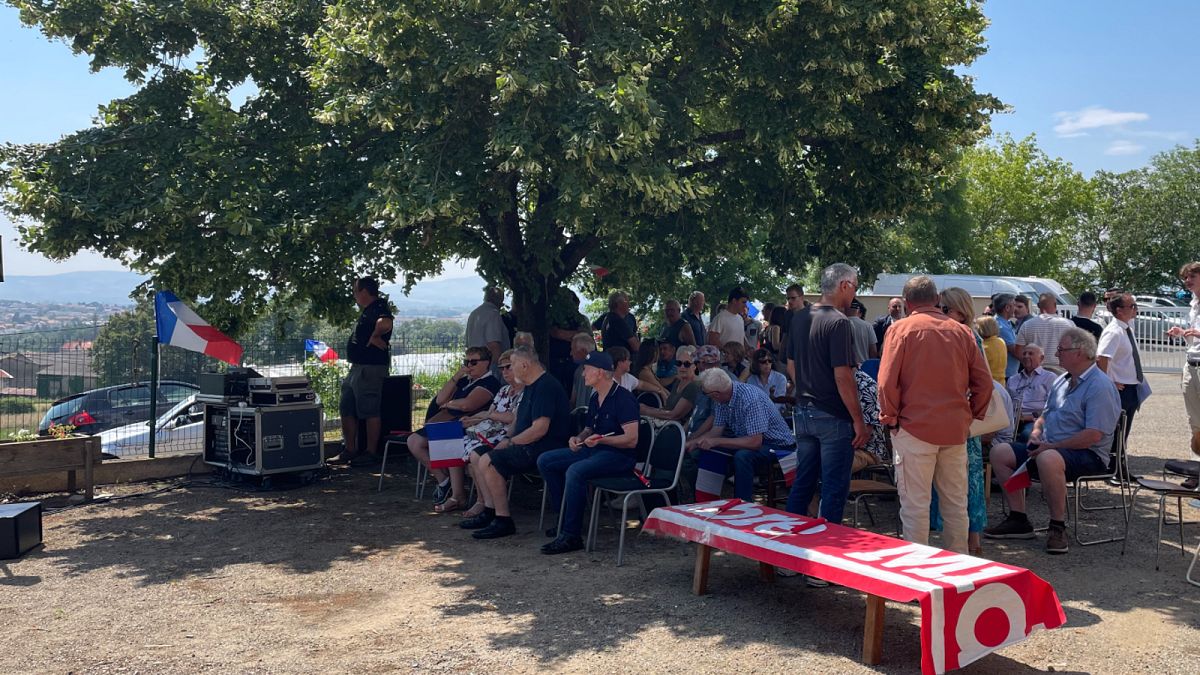In the recent political landscape in France, some members of the right-wing party Les Républicains have made a controversial move to join forces with the far-right National Rally, led by Marine Le Pen. This decision has created a broader base of support across the country, indicating a potential weakening in the support to block the far-right from gaining control of the government. The alliance between Les Républicains and the National Rally has caused division within the right-wing camp, as seen in a local example in a rural town outside of Lyon where multiple candidates with different right-wing affiliations are vying for support.
Marine Le Pen’s niece was seen supporting a local candidate from Les Républicains, Alexandre Humbert Dupalais, in the upcoming legislative elections. This move by Les Républicains’ leader Eric Ciotti to team up with the far-right has stirred controversy within the party, leading to attempts to remove him from his position. However, supporters of Humbert Dupalais and other right-wing candidates in the region have shown up to hear their platforms, which focus on issues such as immigration policy, state authority, and purchasing power. The political landscape in France is shifting, with voters having to choose between traditional right-wing candidates aligning with the National Rally or sticking to center-right alliances.
The rise of the far-right in France has been a predictable trend, with increasing support for the National Rally under Marine Le Pen’s leadership. Le Pen has managed to significantly increase the party’s share of the vote in recent elections, making it a formidable force in French politics. The party’s success in the European elections, led by Jordan Bardella, hints at a potential victory in the upcoming legislative elections. The roots of the National Rally can be traced back to a neofascist movement, but efforts to rebrand the party and distance it from its controversial past have garnered wider support from diverse segments of the population.
Despite efforts by left-wing parties to block the far-right from gaining power, cracks in the so-called “Republican block” seem to be appearing. The historical reluctance of some right-wing leaders to openly oppose the National Rally suggests a larger trend of right-wing parties aligning with the far-right. The growing popularity of the National Rally in small towns and peri-urban areas indicates a shift in political allegiances, with the far-right challenging traditional political parties for dominance. This changing landscape has left left-wing voters fearful of the far-right’s hardline stance on immigration but hopeful for a potential shift in power with the rise of new left-wing coalitions.
In the town of Mornant, supporters of the National Rally reject the label of being an “extreme” party and are focused on preventing what they view as far-left groups from gaining traction in the polls. Many voters in the region express frustration with the current political climate under President Macron, citing issues such as the Yellow Vests crisis and unpopular reforms. This sentiment reflects a broader desire for change among the electorate, with voters seeking alternatives to the mainstream political parties. As the legislative elections approach, the political landscape in France is poised for a significant shift, with traditional alliances being tested and new coalitions emerging to challenge the status quo.











